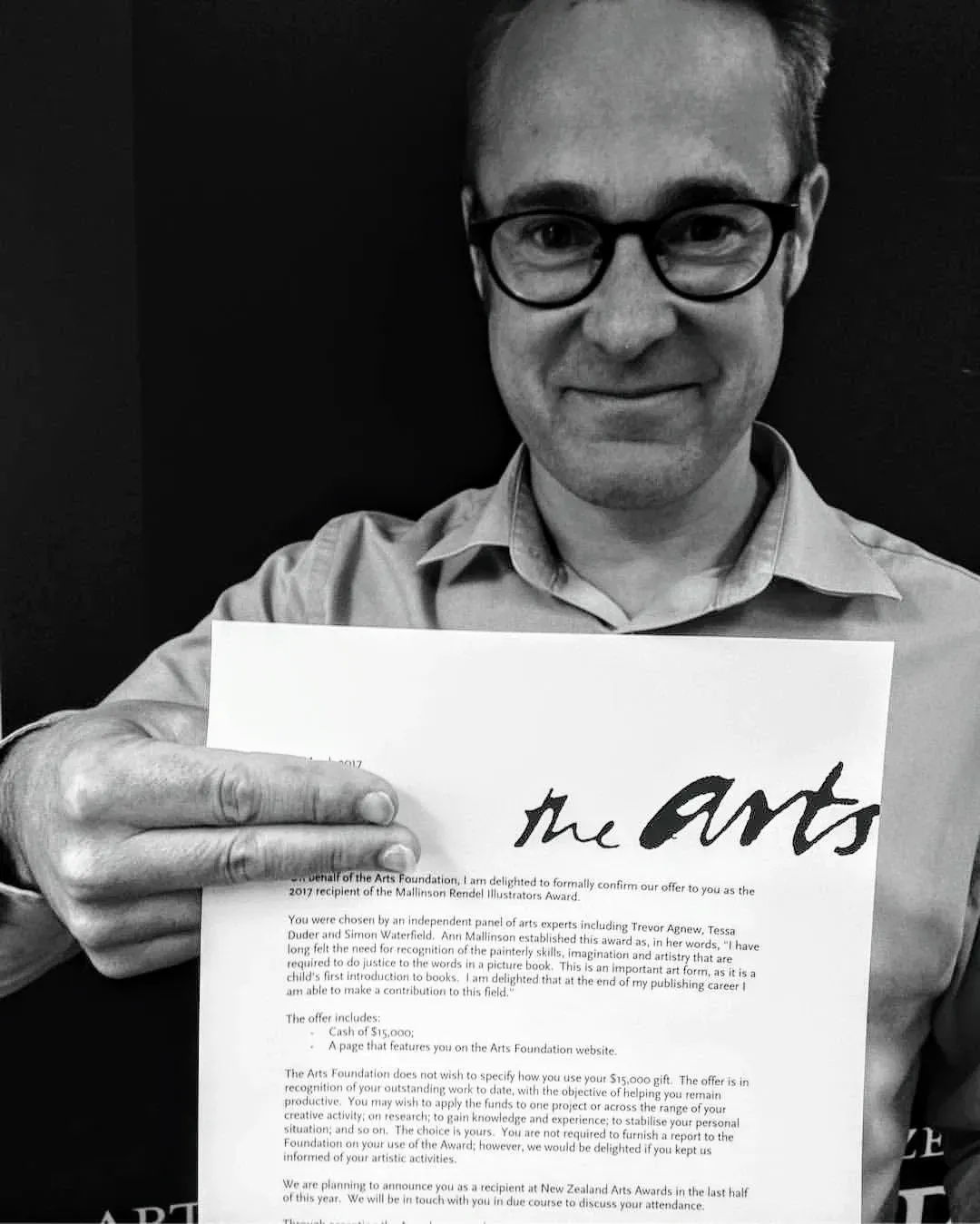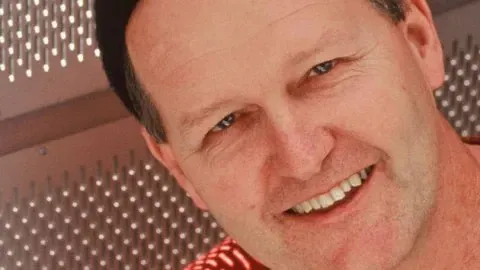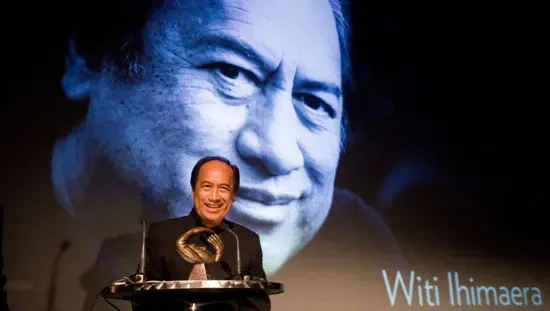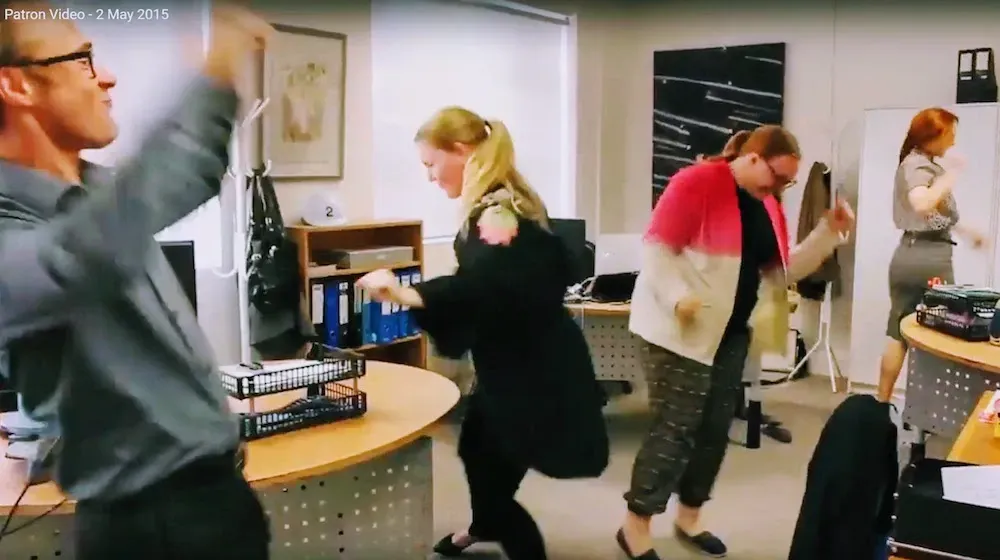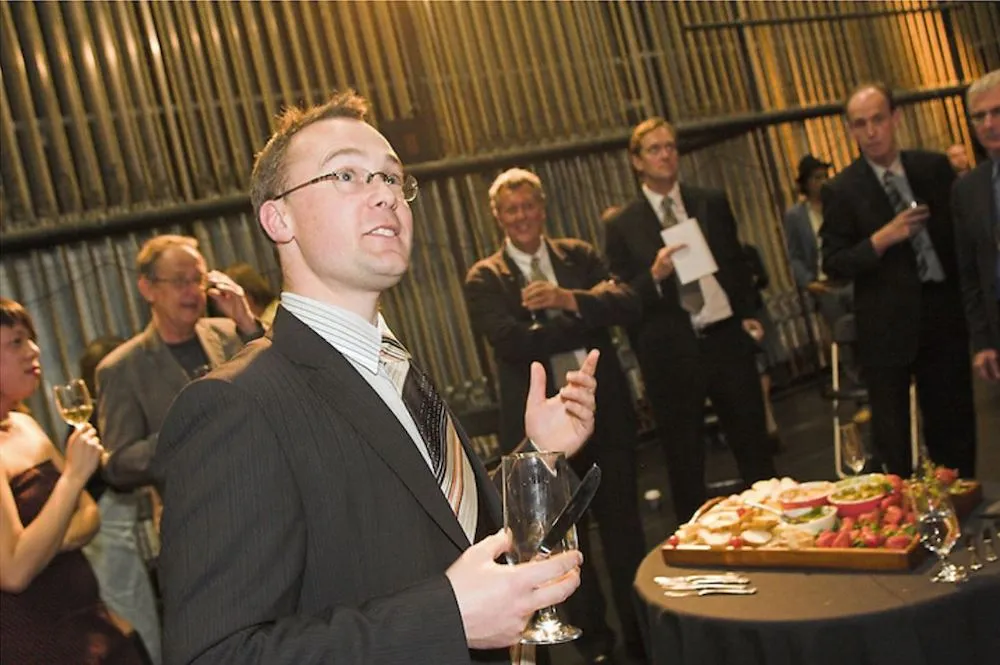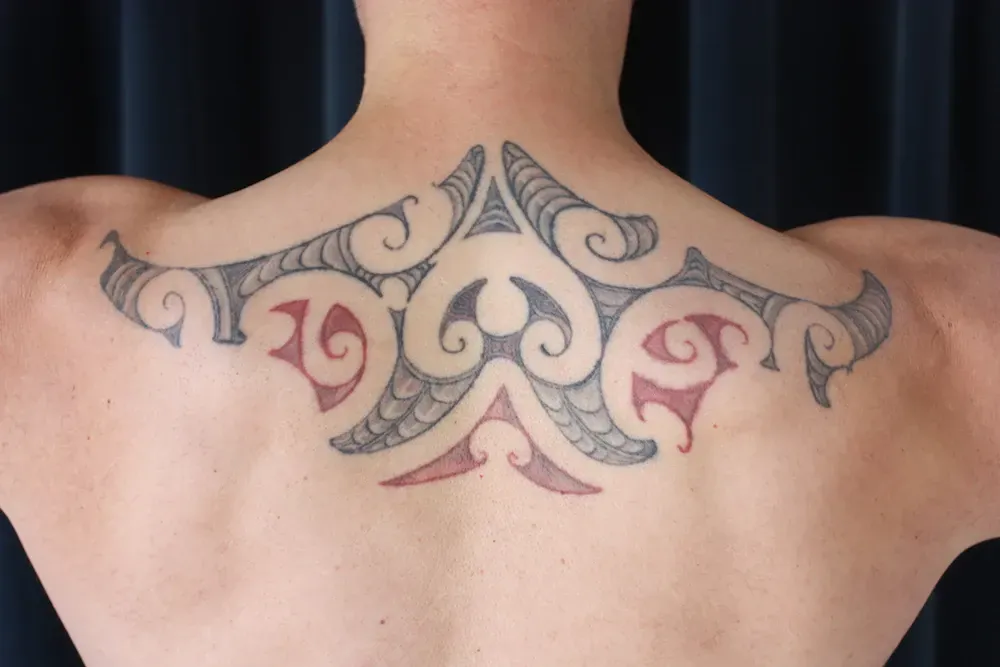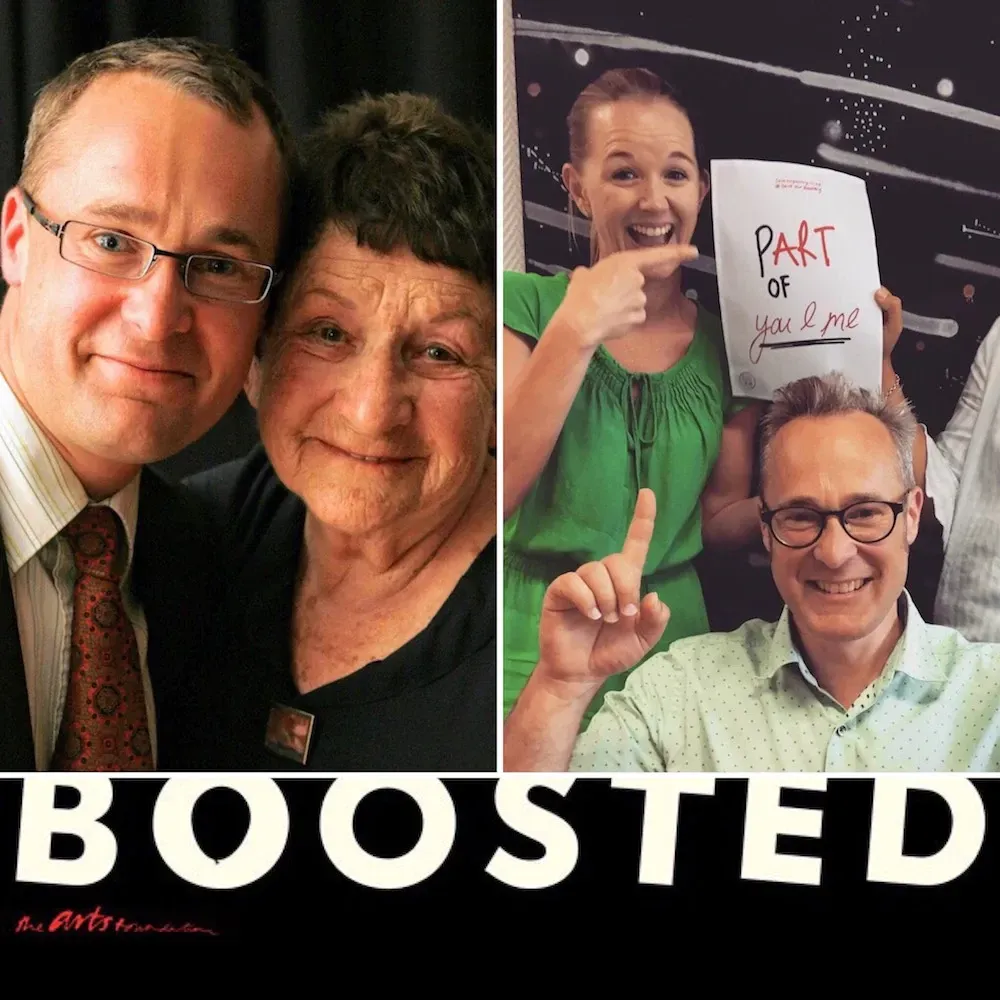The honourable Simon Bowden
Written by
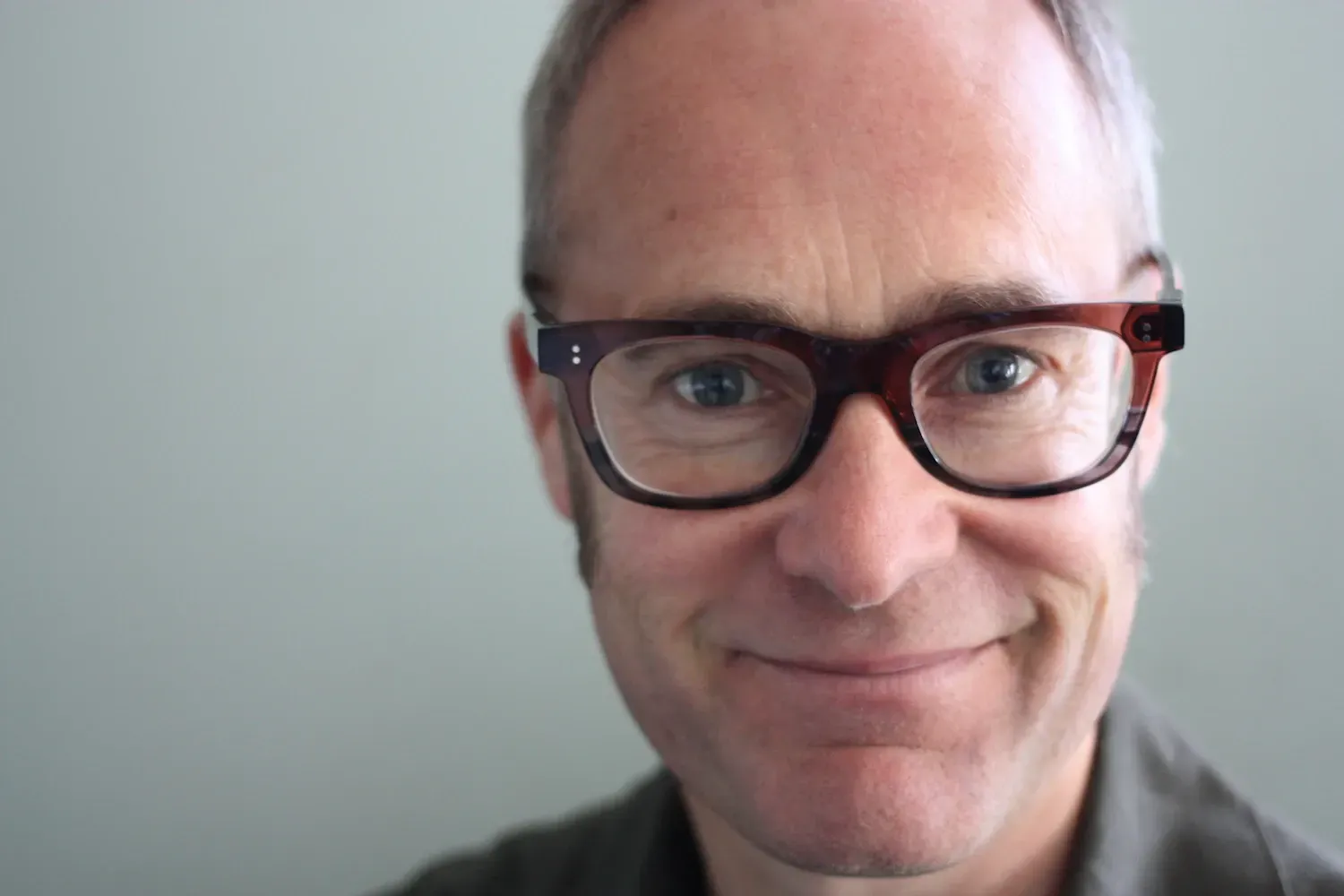
Story by Keri Malthus
Simon Bowden is officially the Executive Director of New Zealand’s Arts Foundation for only a few more days. One thing he probably won’t miss when he moves on, is all the questions and speculation over why he’s chosen to step down.
“Most people for some strange reason think that things have gone bad and I’m leaving because I’m not happy. And that’s definitely not true,” he laughs. “People see me and they go, you look good. They sort of expect to see me being all sad or beside myself. So, I’ve had a bit of that and been able to put people right.”
Now is just the right time for something new. Bowden is excited both for his own future, with several roles to consider, and also by the possibility of a new “brave and bold future” for the organisation he has helped build since 2002.
“One of the things that gives me confidence about the Foundation is that the team coming in has an extraordinary track record of inspiring people to commit to the arts.”
Suggest that he has a pretty good track record himself and his humility comes right to the fore.
“I’m very proud of what everyone who has been involved in the Foundation has achieved over the years,” he says.
“I don’t think it’s about me in any way. It’s about a group of people. I was lucky to be associated with some of the great founders of the Arts Foundation who have become great friends and were mentors in many ways. So, it’s a “standing on the shoulders of giants” story.”
Many of those giants might disagree. Laureate and writer, Witi Ihimaera talks of Simon’s strength and says he’s the person you should follow if you are on the Titanic. “He will know where the lifeboats are, and even better, how to lower them.” (Read more of his, and other tributes below.)
Foundation growth years
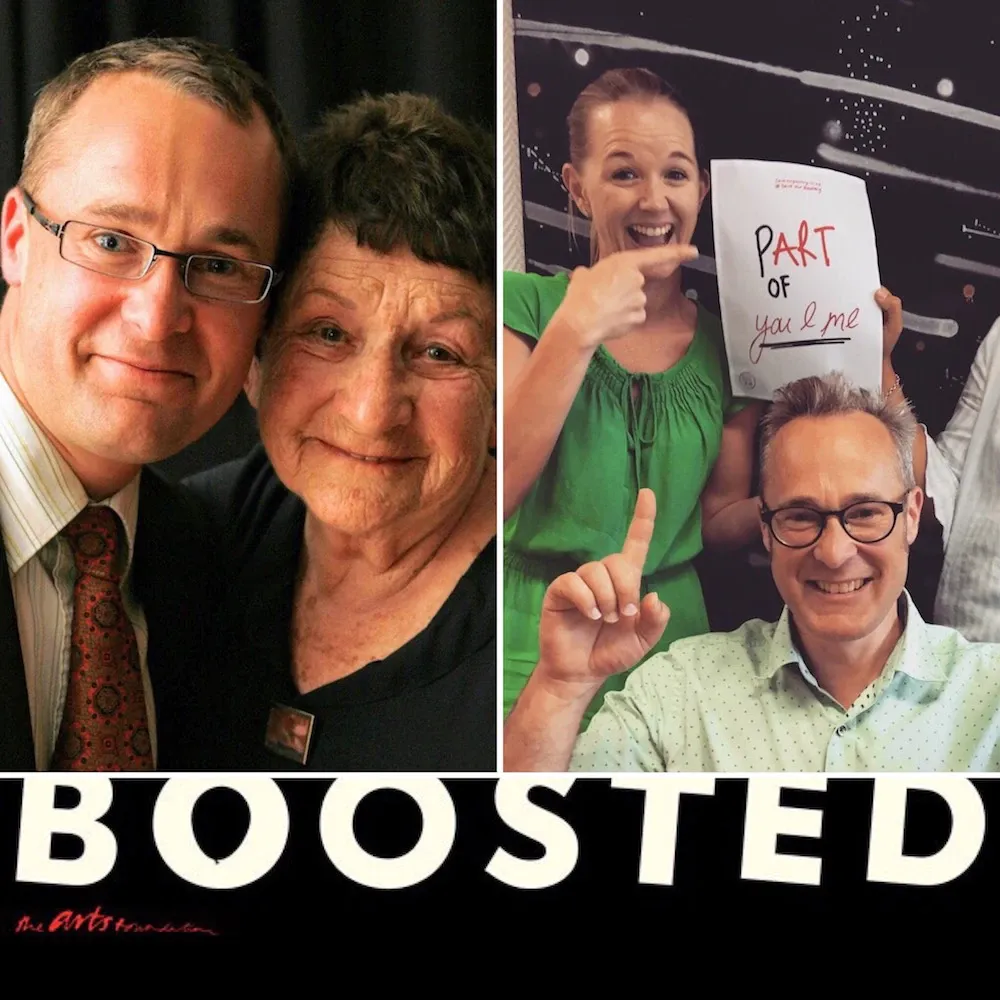
Simon with Marti Friedlander; Campaign for the Auckland Art Gallery; Boosted logo
Bowden is a musician and public policy graduate who was managing the Wellington Jazz Festival when the Arts Foundation gig came up in 2002. It was his first “real job” he says and quite a big one for “this 30-year-old who was running a festival, and making it up as he went along.”
In the 17 years since he’s kept making things up, to the benefit of hundreds of artists and patrons. The Laureate Awards had already been established but his tenure has led to the introduction of the Icon Awards, his New Generation Awards, awards for patronage, the Marti Friedlander Photography Award, and many other initiatives.
He is particularly proud of working with Arts Foundation patrons Richard Cathie and Keith Ferguson to save the Katherine Mansfield Menton Fellowship and almost certainly most proud of the birth of Boosted, a crowd-funding initiative launched in 2012.
“It was a game changer for the Arts Foundation because at that stage it was mainly interested in talking to people that could make donations to the Arts Foundation for Foundation projects and purposes. It was a big culture shift.”
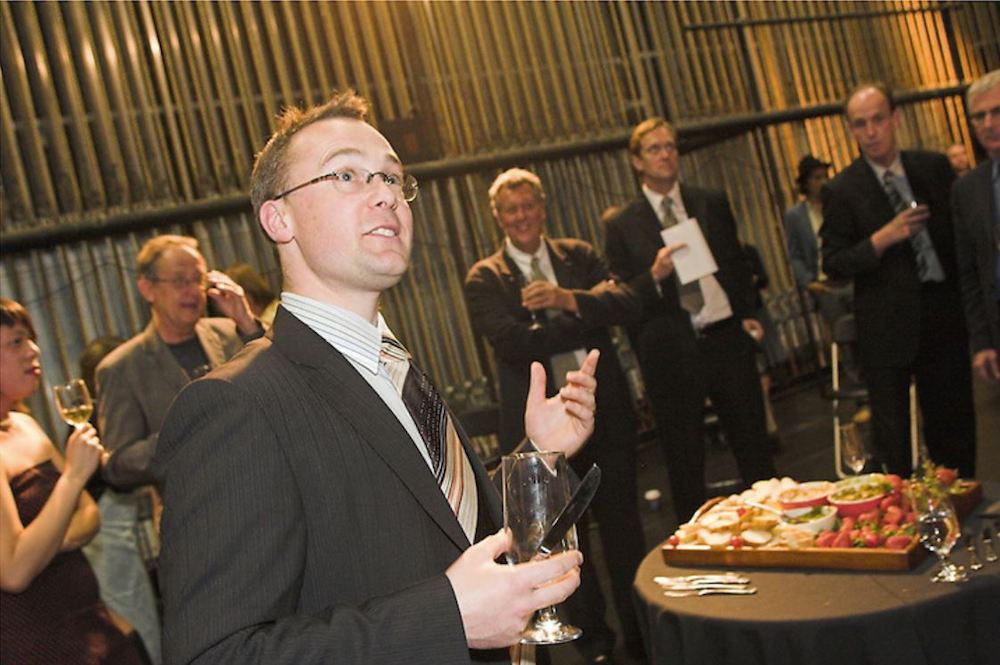
Simon at the 2006 New Generation Awards. Image by Robert Catto
“We went from being an organisation primarily focused on using its own intelligence for its own success, to an organisation that wanted to share its knowledge with everyone, and especially those people that wanted to use Boosted.”
Boosted has now raised $5M for projects, directly helping around 600 art projects. “Every single one of those grants I’ve had to sign a piece of paper for. So, that’s a very proud moment for me, almost daily signing off someone’s grant - all across my desk. It’s been very satisfying.”
Moments of magic and mana
Even more satisfying has been the personal calls he would make to the five Laureate award recipients each year. “It’s been an absolute honour and privilege to make those phone calls. These recipients are incredibly special people and totally dedicated to their practice. The phone calls are totally unexpected by them.”
The artists probably didn’t know this but there was often an audience in the office when it came time for Simon to make the call.
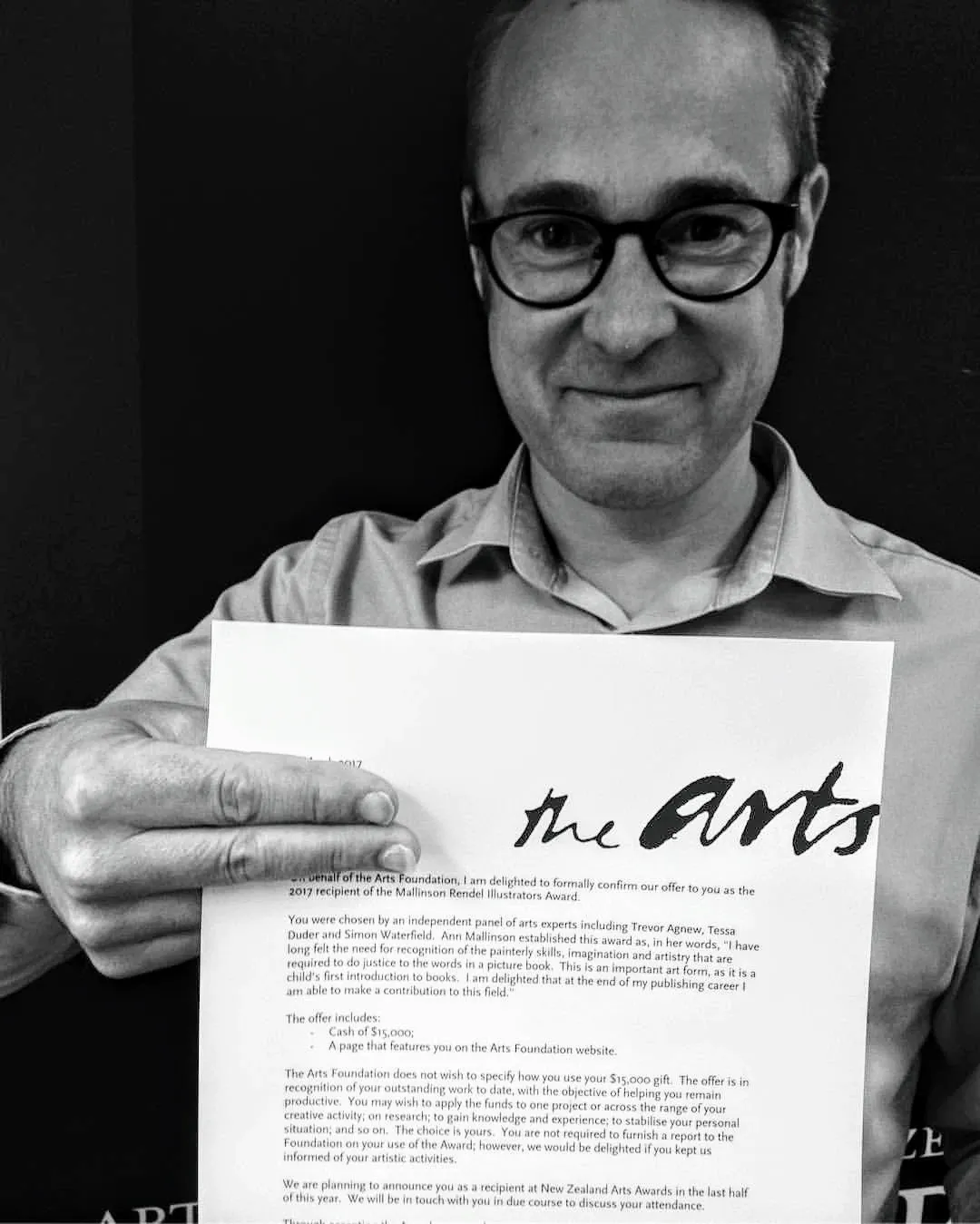
The 2017 Calls
Over the years, the conversations developed a flow - starting out with an explanation of who the Arts Foundation was and then explaining how the award selections happen.
“Usually, at that point, these artists were probably thinking okay, Simon is going to ask me to be on a selection panel. Then I would say the selections have been made. Sometimes you could hear people thinking, “what?” and then I would say, and you are one of the five recipients to receive $50,000.”
“So that was my arc, my little moment where they were confused and then dropping them into this wonderful piece of news and the responses were just glorious. I’ve had stunned silence. I’ve had tears, of course, lots of tears. A lot of expressions of gratitude, confusion and then, of course, a moment of elation followed by “why me and this sudden moment of “oh my goodness, am I good enough for this”.
“You can hear them thinking there are so many other people that deserve this, and how could I possibly be the one that’s been chosen? Very typical of Kiwis, very humble. Yeah, magic.”
The magic is in the giving of good news, he says, not just receiving it. His voice cracking a little with emotion as he talks about learnings from Foundation trustee the late Sir Hugh Kāwharu, paramount chief of Ngāti Whātua.
“Sir Hugh taught me a lot about honour and about mana. He said when you bestow honour on someone it says as much about you as it does about them. The organisation wanting to honour someone actually receives the mana of the person that they are honouring and that builds up their mana.”
A truth that has been simultaneously incredibly precious and also incredibly powerful, he says, in the relationships the Arts Foundation has.
“We have this wonderful Kiwi thing where we are all humble, but we’re also great at the same time. Somehow in the language, somehow in the way the events were run, somehow in the way all the communications happened, we printed things – we managed to hold a place for honour to hold its power.”
What he’ll miss
Simon Bowden is not sure how far he’ll be away from the arts community in his next role but says he will miss the Foundation family – the community of artists and patrons – and the challenge of the job.
“It was always very difficult. As the Arts Foundation is 100% privately funded there was always huge pressure to keep everyone paid and make the whole thing work. Especially when donor money quite rightly should predominantly be going to the cause, not to the running of the organisation.”
“We were so busy doing it, using all of our instincts, obviously in a strategic context and all the rest of it, but working on what we felt was right and living in the moment. That’s probably been one of the most rewarding things. We’ve had the freedom to do that and feel like we are part of the community, really nestled in the community and serving the community. I would say that I feel completely honoured and privileged to be in the service of the arts.”
They had to be fast learners and move quickly.
“Because it wasn’t Government funded, there wasn’t any backstop there; you were always on the edge of your seat. When I got the job Sir Ron Scott (founding member) said “the great thing I like about you Simon is that if you have a problem you don’t say to me, I need to go on a course to solve that, you just get in and solve it” and that is what we did.
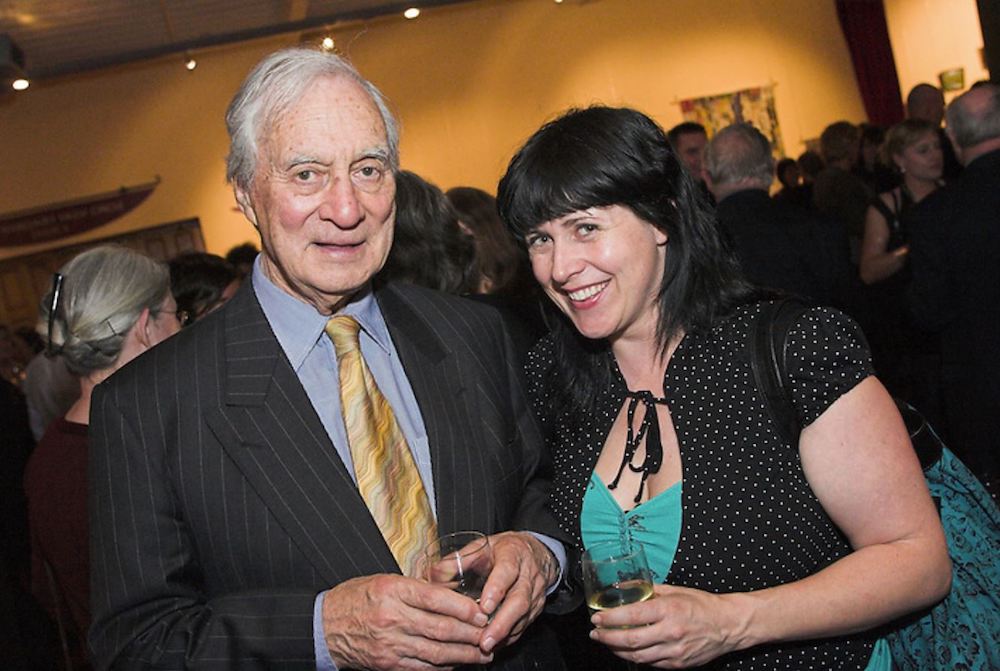
Sir Ron Scott. Image by Robert Catto.
“Sometimes I’d invent entire systems only to find out later that actually someone else had already done that. By inventing it ourselves we had a slightly different take on it, a deeper understanding and there was no loss of efficiency because of the depth of learning that came from that sort of approach.”
“I’ll miss the community, I’ll miss those calls, I’ll miss signing off those Boosted grants. I’ll miss the problem solving that goes on in terms of the challenges and funding and I’ll miss the trustees of course and all the other people that worked with me at the foundation.
He’s grateful, he says, to the depth of dedication of all those who’ve worked with him over the years. “Quite a number of them have gone on to have fabulous careers which are in part based on the experience they had at the foundation which I’m pretty proud of as well. I had fantastic collaborators, fantastic managers and all kinds of people working on all the projects. “
He says the team worked more with him than the Foundation trustees, so the trustees really only saw the staff through him. “Probably their story is not told enough or understood enough and if I could go back again, I would find more ways for their achievements and for their brilliance to be more recognised. “
The fun of philanthropy
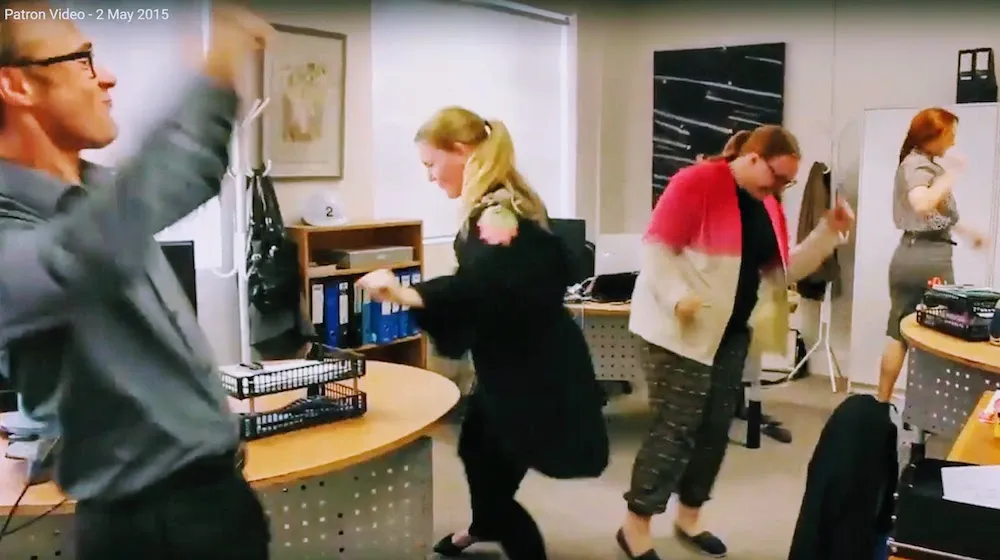
(l-r) Simon, Kate Ricketts, Stephanie Richardson, and Anna Edgington dancing to celebrate each big donation
An example of the team spirit at the Foundation can be seen in this video of the celebration dance in the office each time a new Patron was signed up. Another is in the playful incentives at fundraising events around the country to encourage people to commit.
One night in Queenstown Bowden was made to promise to strip off his shirt and reveal his Derek Lardelli Ta Moko, if 10 people donated. Ten people did.
“I had to show them this artwork that happens to be across my back. We turned the act of giving into a fun game. It was gamification really. We had a lot of fun around the mechanism of giving, at one end of the spectrum, but it’s all driven by this purpose at the other.”
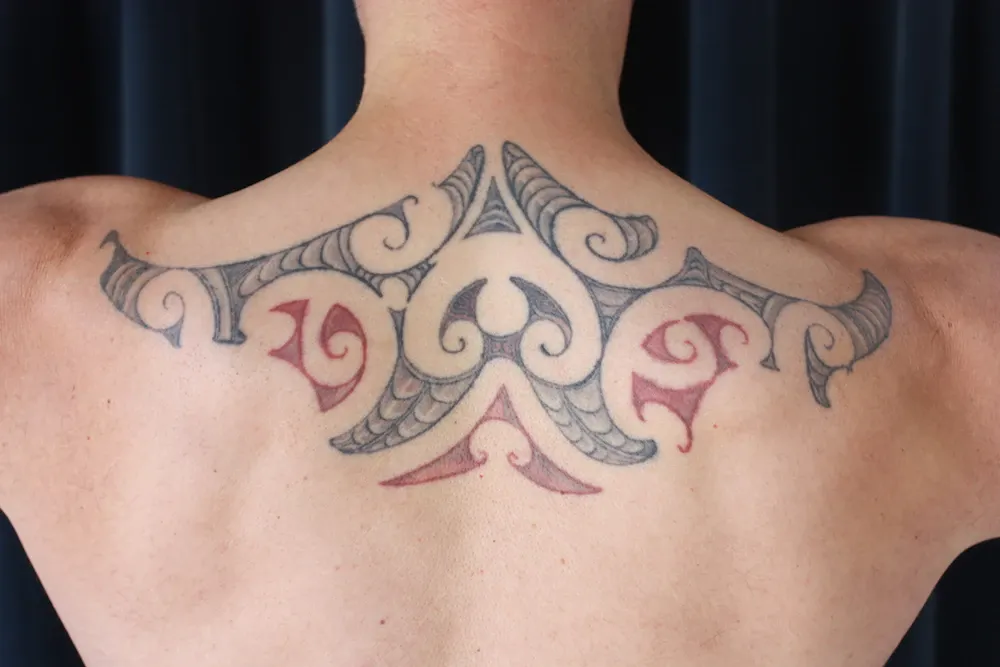
Simon Bowden's Ta Moko, Kirituhi 2014, by Derek Lardelli, Arts Foundation Laureate:“Acknowledging the warrior spirit, upholding the values of Te Tumu Toi”
What Simon says
About the Foundation’s future
It’ll just get bigger. It’ll add a new element which is here’s the impact we are having. It’ll be an impact story. There is going to be the appointment of a dedicated marketing manager, and also an artist’s liaison person who will be the liaison with the arts communities and also the whole process around selection and setting direction of awards.
I’m really excited about that appointment in the mix of everything – that the Foundation will have a dedicated resource in consideration of its relationship with the arts sector and how it benefits the artists. I think that’s going to be great.
About the patrons
I’ve had the privilege of being surrounded by extraordinary selfless generosity and those people I would like to thank on behalf of the Foundation and also on behalf of myself.
They have treated us wonderfully. They’ve been deeply respectful of the arts. It’s really been their energy, enthusiasm and their ongoing commitment over many, many years that’s been the fuel to keep us going through everything.
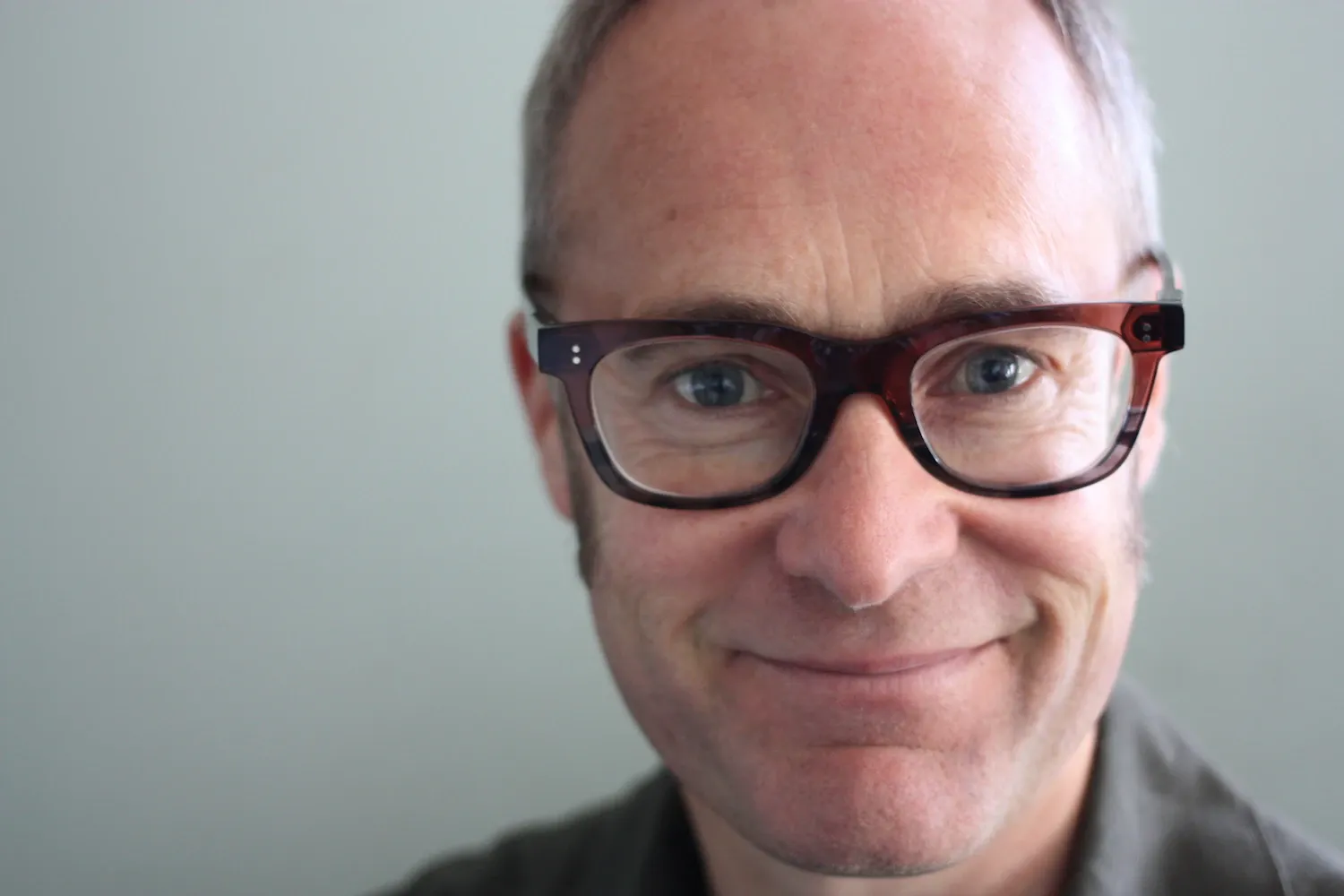
About the challenge for the arts
The challenge is around the arts’ value to society. In some ways, it’s competing for space and time in the minds of people who are concerned about the environment, or social equality, housing – those kinds of big problems.
The arts can be seen as part of a solution, and an important part of society whilst also protecting its intrinsic quality and value as a form of human expression. That pathway leads you to a wider and deeper base of supporters and also helps you with your relationship with corporate supporters.
That’s the frontier if you like. The big challenge that the foundation has to face up to and take on if it wants to, and it does want to, expand the number of people giving to the arts and talking proudly about the arts being an important part of their lives.
About Simon
“Somebody once said that you can do anything in the world if you don’t want to take credit for it. That sounds exactly like Simon. You don’t truly know a person’s measure as a leader until they have to front up to challenges.
I saw how strong Simon was on the eve of the Foundation’s awards in 2009 when I was due to receive a Laureate award. However, I was also facing huge media attention because of unattributed borrowings in my book “The Trowenna Sea”.
Calls were being made to have the book withdrawn from sale, to have me fired from the University of Auckland and so on, and a television crew turned up for three days running to lay siege at my house. Rather than incriminate the Foundation as well, I therefore offered to give the Laureate Award back and not turn up at the ceremony.
But Simon submitted the dilemma to the Foundation’s due process, and he made a judgement call that withdrawing would only make the situation for the Foundation and myself worse not better. He swiftly surrounded the event with a safety net and called in some experts to give me advice on how to handle the occasion if it became a circus and turned to custard which, fortunately, it didn’t.
Simon’s like that, very muscular in his thinking and cool-headed. He’s the person you should follow if you’re on the Titanic. He will know where the lifeboats are and, even better, how to lower them.”
- Witi Ihimaera Arts Foundation Laureate, 2009
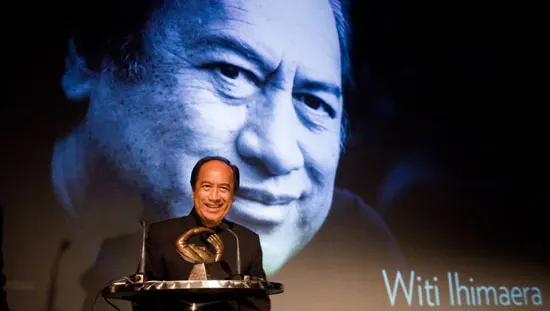
When Simon joined us, it was like a new beginning.
Previous management had shown little initiative, so Simon’s arrival was like a breath of fresh air. He energised us all to raise the profile and activities.
Forsyth Barr became the “Naming Sponsor” and with Simons enthusiasm, we enjoyed a wonderful, positive relationship. As a founding Trustee, I will always be extremely grateful for Simon turning our vision into reality.
All the best from Jan & myself,
Eion
- Sir Eion Edgar
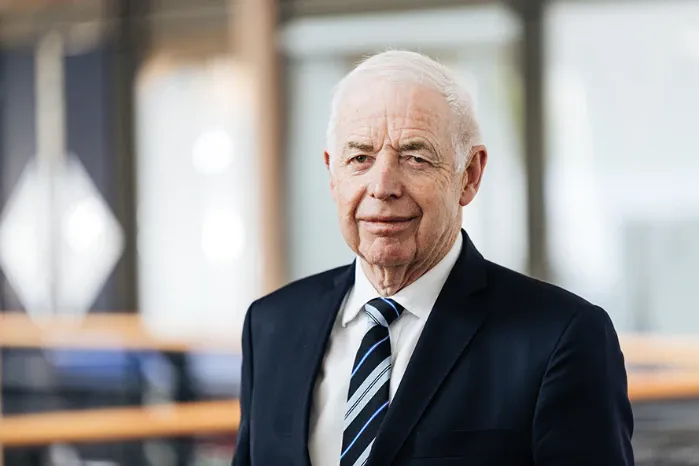
“Simon is big on values. One of the great things about working with Simon was seeing how he liked to engage with the big picture concept of philanthropy - how it figured culturally.
What motivates the 'giving’ instinct in us? There is that statement that the greatest benefit from giving goes to the giver and so it was about convincing people the benefit of giving to our arts culture. It was a hard road - meant dealing with concepts like elitism - that’s not an issue on the sports field but any suggestion of exceptional performance in the arts always attracted the pejorative it’s 'too elitist'.
These values were always in front of the discussions Simon and I had.”
- Warwick Freeman Arts Foundation Laureate, 2002
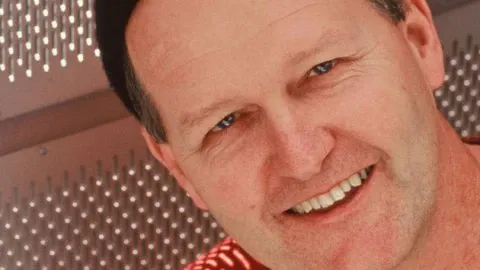
Trish Oakley on the partnership forged with the Arts Foundation:
"Ours was a blank sheet of paper - together we would design a program that celebrated the Foundation’s artists and connected our clients to their works and the arts in New Zealand. Simon delivered us all a rich education, he taught and celebrated the importance of the arts and together with the guiding wisdom of Sir Ron, we embarked on what was a successful journey.
That success was down to partnership, one founded on respect, and down to Simon, who so generously shared his knowledge and connections and always remained open to possibility.
"It’s not every day you get to work with someone like Simon, it was, without doubt, one of the highlights of my professional career. For the opportunity I had over many years, I will always be grateful. For all he gave he will forever be part of our company."
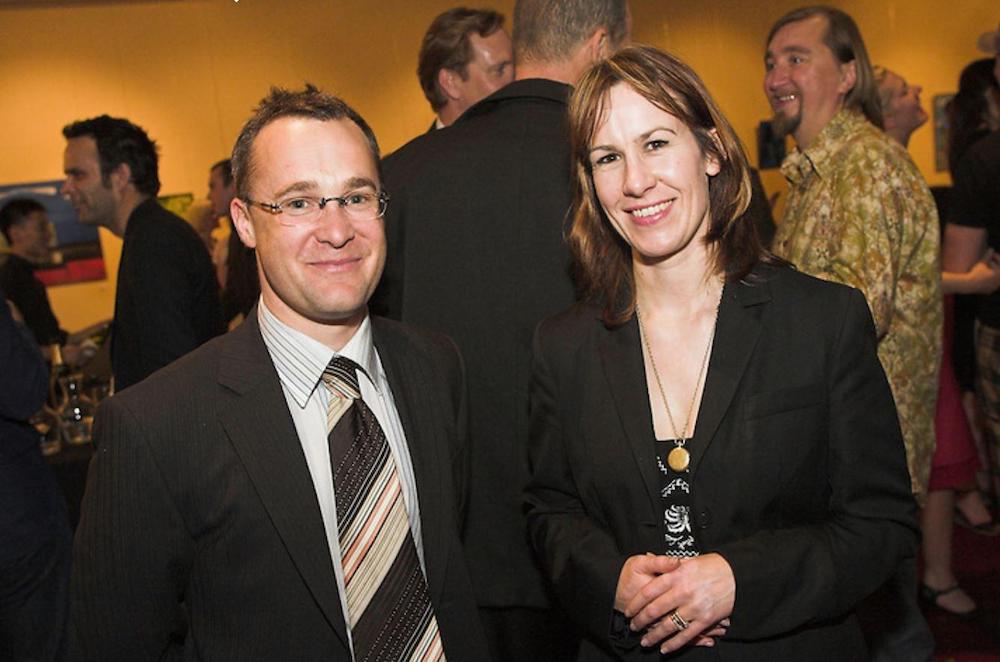
Simon Bowden with Trish Oakley of Forsyth Barr, 2006 Awards event Wellington – Image: Robert Catto.
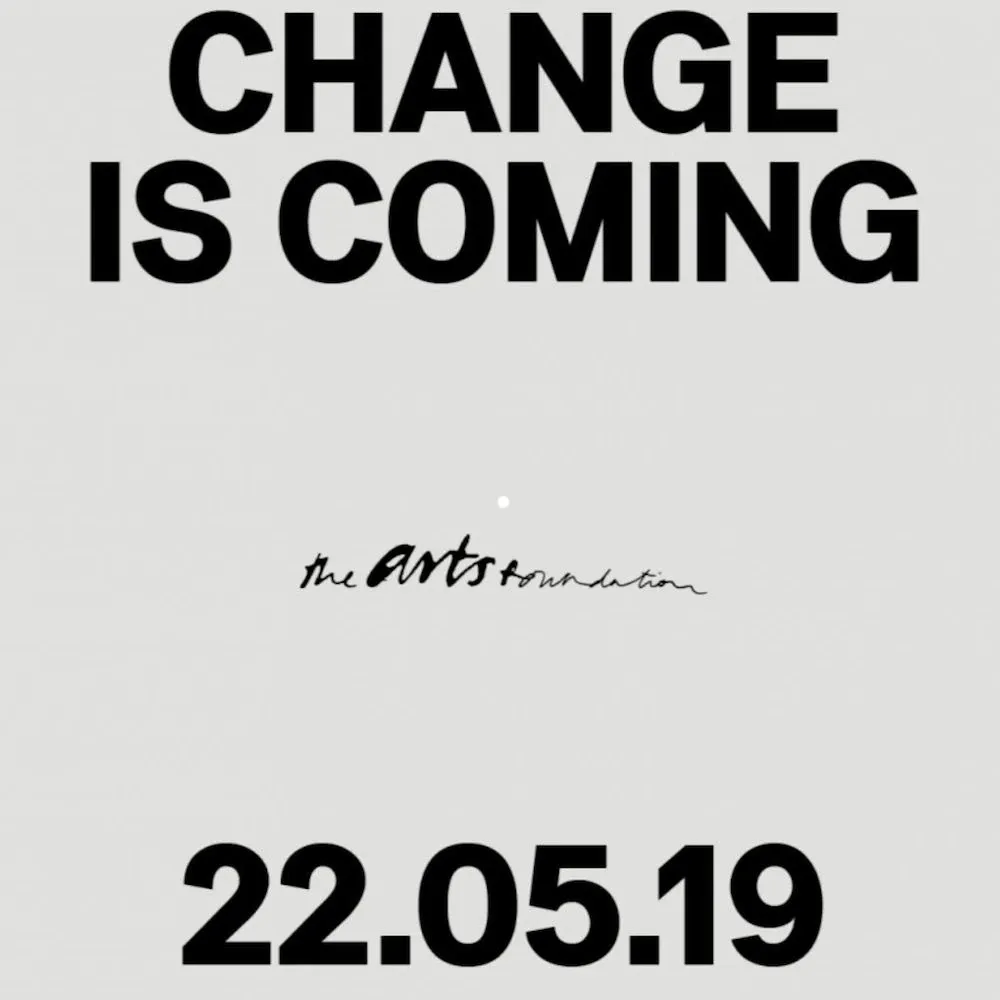
Changes are planned to the number and size of awards from the Arts Foundation although the Laureate and Icon awards are staying.
The new strategy and focus will be announced on 22 May.
